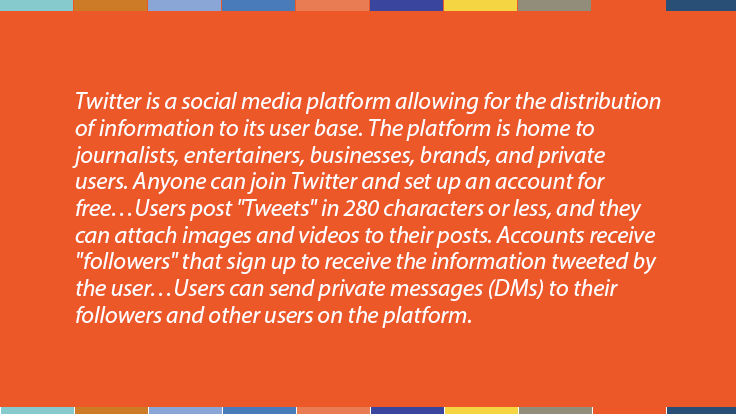First, Elon Musk launched “EBITDA,” earnings before interest, taxes, depreciation, and amortization, into the daily press with his quest to buy Twitter. (See our blog, EBIDTA.)
After that, it was “free cash flow.” (See our blog, Cash is King.)
Now it’s “core business.”
A vital issue in the Musk-Twitter debate is whether the claims from both sides have anything to do with the company’s core business. However, we’re not interested in those claims. Instead, we’re focused on essential concepts for the “owner-worker” and how they should think about their “core business.”
One of the things we try to do is get the owner-worker to understand their “core business” and why articulating it is important.
Here’s a description of Twitter’s core business model:

Twitter is a “value network.” There are two other generic business models: (i) value chains and (ii) shops1.
Our forensic economic cases typically involve “value shops.” A value shop “creates value by mobilizing resources to create individual solutions to customer problems or to exploit market opportunities.” Examples would include consulting and advising services and “creative activities.” The services can range from laying pipes to designing a website. The value shop model applies to most services owner-workers provide. The owner-worker mobilizes resources to address specific needs. They meet needs.
Jerome S. Paige & Associates, LLC is a “value shop.” We analyze and interpret information and report our findings and opinions. That’s our “core business.”
Suppose an owner-worker suffers an injury or dies because of an action of another person. In that case, it’s important to be able (i) to define their core business model, (ii) the extent to which their model can operate at its pre-event level, and (ii) the limitations placed on the business’s growth potential. In many owner-worker firms, “the owner” is “the business.” They make the magic happen.
Since many owner-workers operate their business “out of their heads,” we as forensic economists must grasp how the owner-operator generates “free cash flow,” particularly if their record keeping isn’t pristine.
As the Musk-Twitter debate illustrates, there are many factors to consider when deciding whether to buy or sell a business. For example, in the case of Twitter, the number of “bots.” But, “bots,” regardless of their number, don’t affect the business model. They may affect other things like how someone might want to value the company.
A distinction between core and non-core business factors is critically important in a damages case involving an owner-worker. Why? The owner-worker isn’t looking to buy or sell their business; buying and selling isn’t the basis for determining the value of the owner-worker’s enterprise. Instead, they are looking at “impairment” and its effects on delivering the “core business..” As forensic economists, we have to measure that impairment and its financial implication.
So, owner-workers: understand and articulate your “core business” and what might impair and enhance it.
